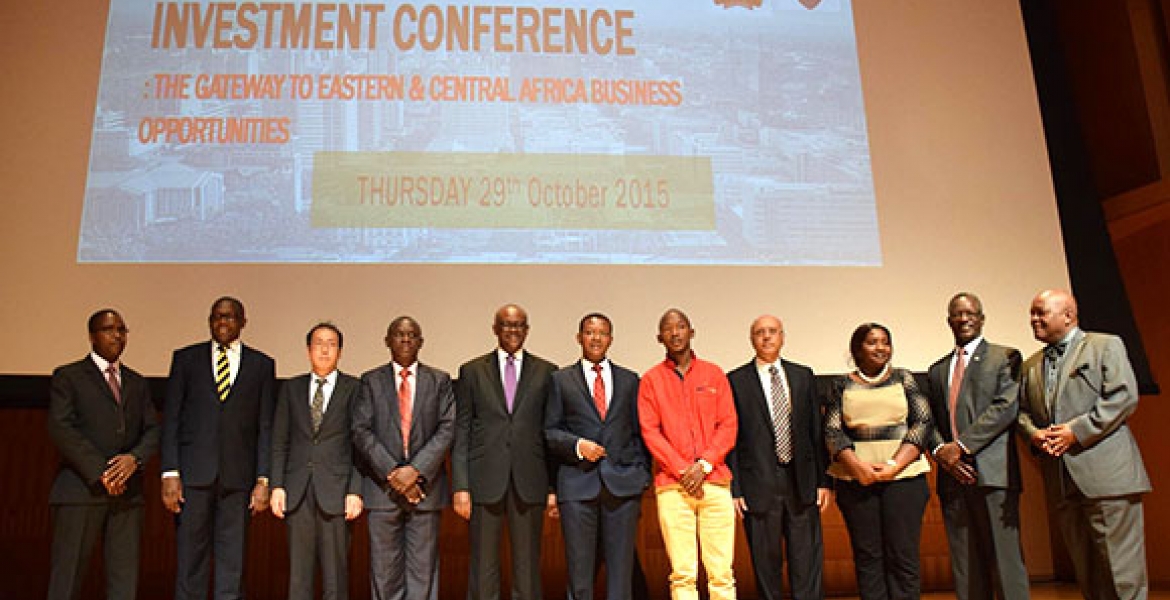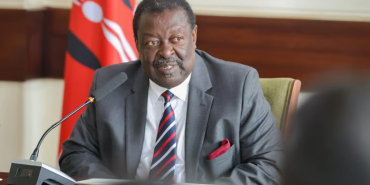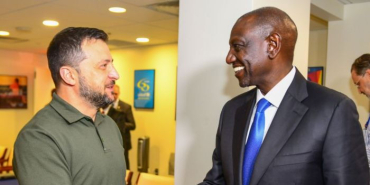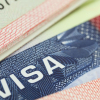Why Kenyans in the Diaspora Have Little Political Say Despite Holding Economic Power

Kenyans in the diaspora continue to have little political say despite possessing a huge economic muscle.
Figures released recently by the Central Bank of Kenya (CBK) show that remittances from Kenyans living and working abroad grew to Sh274 billion in 2018 down from Sh197 billion the previous year.
Since 2015, diaspora inflows have been Kenya's leading foreign income earner ahead of tea, coffee and tourism.
CBK says diaspora remittances have helped strengthen the Kenyan shilling against the dollar and spur investment.
However, the diaspora community has not been able to exploit its economic strength for any political or policy change in the country.
Daily Nation reporter Chris Wamalwa has spoken to a number of Kenyans abroad in an attempt to understand why this is the case.
Kenyan-born Henry Ongeri who practices law in Minneapolis, Minnesota attributes this to lack of political will by Kenyan leaders.
He says: “The main reason is the lack of political will and irrational suspicions by the political class in the country. This is not exclusive to those currently in power, as some opposition leaders are not any more eager."
He adds that it's for this reason that the political class has not advocated for the establishment of an institutional framework for the full integration of the diaspora.
“In some cases, they are simply scared of the potential influence of the diaspora. We no longer think that this intransigence is incidental or unintended,” Ongeri tells Wamalwa.
Ongeri cites denial of the democratic right to vote for Kenyans abroad as well as the discrimination in the delivery of government services such as the issuance of passports and national IDs.
“Despite clear provisions of the relevant law and unequivocal pronouncement by the Supreme Court, a majority of Kenyans living in North America, Europe, and the Middle East have not voted in any election in Kenya,” he says.
For instance, Ongeri notes that Kenyans in the diaspora are required to pay higher fees than the normal rates to acquire IDs and passports.
“Ironically, Central Bank of Kenya is never late in documenting remittance trends and politicians keep flocking to the diaspora to court us!”
James Sang, a Kenyan living in Washington, DC attributes the exclusion of the diaspora from the country’s decision-making table to their negligible numbers, especially when viewed in terms of votes.
He also faults the government for failing to develop ways of turning the remittances into an infrastructure development fund.
He says it's sad that most of the remittances go into personal projects or to relatives.
“We play a huge part in our nation’s development. In 2017, my friends and I decided to set up healthcare clinics in Kenya as a way to give back to the community and also to participate in the government’s overall Big Four Agenda,” Sang says.
However, Dr. Ken Simiyu, a research fellow at the University of Maryland, has a different view on the exclusion of the diaspora Kenyans.
He explains that unlike most of the other African diaspora who were forced to leave the countries as a result of political activities, a majority of the Kenyans abroad moved because of school or economic reasons.
“Because of this, they are naturally less inclined to take part in the political process in Kenya, unlike other activists. The majority are aloof at the political happenings in Kenya and are content at looking at it from the sidelines. Many are content with making investments such as buying plots and building houses,” he says, adding that the nature of Kenyan diaspora is not political and is only viewed through an economic lens.
He also says most of the diaspora remittances go to consumption rather than directly influencing specific sectors.
“So despite the apparent cumulative large amounts remitted, the collective impact is not felt as the cash doesn’t directly influence any particular sector of the economy,” he notes.
Dr. Simiyu also argues that the nature of Kenyan politics makes the diaspora disinterested.
“They are used to societies where politics is civil and people argue policies. In Kenya society doesn’t care about honesty, policy, and service. Lies and thuggery are the order of the day which put off the diaspora. Most have given up with the system. The few who have dared participate in the political process have often learned that having clear policy arguments don’t matter."
He also mentions a lack of unity among Kenyans in the diaspora as another reason why they are not involved in policy making. He notes that many groups abroad are organized along tribal lines.
"With lack of cohesion these groups cannot have any influence in Kenya,” Simiyu says.








Comments
Spot on! No further comment!
Permalink
Spot on! No further comment!
The only say DIASPORANS have…
Permalink
In reply to Spot on! No further comment! by XG (not verified)
The only say DIASPORANS have or had in Kenyan politics is "those NASA Diasporans that Looted the Pockets of some NAIVE Diasporans who Sponsered the so-called 'Adopt a Polling Station'." It was a Mess.👹
The only reason NASA was…
Permalink
In reply to The only say DIASPORANS have… by Sober (not verified)
The only reason NASA was able to do everything it did was because of the 100% support they got from their supporters in diaspora.
NASA actually has majority of the diaspora support.
I agree. But some Diaspora…
Permalink
In reply to The only reason NASA was… by Vicky (not verified)
I agree. But some Diaspora NASA bad Apples CORRUPTLY benefited from the so-called "Adopt a Polling Station".
How is this article even…
Permalink
In reply to Spot on! No further comment! by XG (not verified)
How is this article even spot on?
Start with Miguna Miguna
Makau Mutua
Go to all the other elected officials who used to live in diaspora like:
Ole kina Ledama-Senator Narok
Tanga Tanga memebr Susan Kihika she used to be a lawyer in Dallas she became a politician and know she loiters in Kenya for no known reason with Tanga Tanga gang.
“They are used to societies…
Permalink
“They are used to societies where politics is civil and people argue policies. In Kenya society doesn’t care about honesty, policy, and service. Lies and thuggery are the order of the day which put off the diaspora. Most have given up with the system. The few who have dared participate in the political process have often learned that having clear policy arguments don’t matter." No further explanation !
Couldn’t put it better…
Permalink
In reply to “They are used to societies… by formerlyguest2 (not verified)
Couldn’t put it better...immediately brought to mind my friend who went to Kenya to vie for a position but came back dejected complaining that truth & a genuine heart don’t matter in Kenya. Very sad.
Tanga Tanga member Susan…
Permalink
In reply to Couldn’t put it better… by MLACHAKE (not verified)
Tanga Tanga member Susan Kihika is a former diaspora Kenyan.
There many who have political positions.
Miguna Miguna is one of the…
Permalink
Miguna Miguna is one of the most Vocal diaspora Kenya.
Why didn't you not interview him?
Also, we have Makau Mutua. Our Diaspora political analyst.
Why did you not interview him?
We have several diaspora Kenyans as parliamentarians and MCA'S and we even had a presidential candidate from diaspora.
What influence are you referring to?
Deputy governor West Pokot is a diaspora kenyan-the one who is lives in dallas and he supposed to be in kenya-that one.
Ledama ole kina is also a former diaspora Kenya.Senator Narok.
@Vicky only big fools will…
Permalink
@Vicky only big fools will interview a fat big fool like miguna??I use to like miguna but with time his mouth stinks!Really stinks if this is what diaspora can offer then it stinks??Diasporas who have made usa/Uk/france n others their country should vie there juu they have decided to die there so waachane na siasa za nyumbani!I personally tried a lot to bring kenyan pastors in the state i lived to come together so we can have a big kenya church sitting about 300 kenyans but walikataa so many diaspora r greedy tribal n they won't make any steps???Why have 6/8 churches in a one state like newjersey with about 20/30 members instead of coming up with 1 big church??Do u know how big influence u will have when ur all worshipping in a big group!Even receiving funds from government becomes easy??Anyway msiponjipanga mtapangwa so stop yapping.
Nice article but the author…
Permalink
Nice article but the author need to understand that MOST diasporas migrated because they were 'the weakest link' back home. Majority were form four failures/less fortunate. In a way, problems back home triggers a mental ailment called 'PSTD' which makes them less enthusiastic.
Add new comment